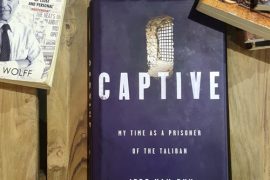What are some important life lessons that the world’s most famous sociopath of a detective has to offer us through his many adventures? In what aspects should we take Sherlock Holmes to be our role model?

Warning: This article may include potential spoilers from the books and the series adaptation Sherlock!
One of the greatest, most eminent and first-ever consulting detectives in the world might be just a figment of Sir Arthur Conan Doyle’s imagination, though has a lot to teach us on how to live. This character goes by the name of Sherlock Holmes. He owns a residence in 221b Baker Street in London, stars in movies and series, and is the most famous crime solver worldwide. We could learn a lot from his many admiring attributes, his intelligence and analytical skills, and even his faults, like the irrefutable fact that he has the emotional range of a teaspoon. Here are three lessons the great detective could teach us about our approach to life.
- “You see, but you do not observe.”
We use ‘seeing’ and ‘observing’ interchangeably when we are conversing with others, yet there is quite a distinction between the two words. John Watson, Sherlock Holmes’s partner in [solving] crime and best friend, would always seem baffled at his friend’s incredible analytical breakdown of situations. In the Sherlock Holmes and The July Crisis book, Watson made a remark on Holmes’ astonishing deductive ability. This sparked a response from Sherlock where he explains the difference between seeing and observing:
Sherlock: “You have frequently seen the steps which lead up from the hall to this room.”
Watson: “Frequently.”
Sherlock: “How often?”
Watson: “Well, some hundreds of times.”
Sherlock: “Then how many are there?”
Watson: “How many? I don’t know.”
Sherlock: “Quite so! You have not observed. And yet you have seen. That is just my point. Now, I know that there are seventeen steps, because I have both seen and observed.”
This criticism that Sherlock made to his friend is not one just targeted towards John, but one that applies to us as well. With the technological advancement we are undergoing, we are relying more on devices to remember moments to see them later and spending less time observing the smaller details. We have become so engrossed in trying to achieve the perfect angle, get the perfect shot, and save as much as we can from every experience to see it later. We are beginning to live a life through a lens and trying to keep a record of it so that we could focus on some details later. This comes at the price of living in the moment, in the space, there-in, and there-at. This conversation between the two characters should make us reconsider our way of living through pictures and videos, and instead, be observant in the experience itself.
- Do not judge a book by its cover.
Sherlock is known for his uncontrollable tendency to give you your life story before you even utter the first letter of your name. Here, he sets an example of what we should not be. His deduction of other people is mostly based on appearance and with time, their reaction to things. In the books, movies, and series, he is crafted to be right most of the time. However, even the great Holmes’s seamless judgment can be incorrect sometimes, and so is ours. This is shown in the Sherlock series through Holmes’s first encounter with Moriarty. Holmes believed that Moriarty was just an innocent man. Later on, Moriarty was shown to be someone completely different from what he appeared to be. He was, in fact, a mastermind criminal and a deceiver. Moriarty disguised himself in a way that seemed to be innocent and wanted Sherlock to believe his act, and Sherlock managed to fall in the trap and do just what Moriarty wants.
When meeting people, we need to keep in mind that there is a story behind every person and a reason why they are the way that they are. So, we must think twice about this before jumping to conclusions about a person.
- You do not need to have many friends. One good friend is all you need.
We tend to believe that “the more, the merrier”, but when it comes to friends, Sherlock shows us that the opposite is true, “less is more” in this case. Holmes may be well-liked by his fandom, but in the stories, the only person who is truly considered to be his friend was Doctor Watson, and a great one at that. John was an honest man who always told Sherlock the truth no matter how hurtful, in which case, Sherlock was already immune to because of his somewhat unemotional nature. Watson was someone who was there for Sherlock when he was at his lows, like the time he gave in to drugs. Watson was always there supporting his comrade, throughout his blogs and career as a crime consultant. Sherlock Holmes may have had just one friend, but this one friend was all that he needed.
The great detective still has many other messages to share with the world. Taking Sherlock as an example, make it your challenge to strengthen your deductive abilities and try to unearth buried life lessons in Holmes’ story or the next series or movie you decide to watch.



